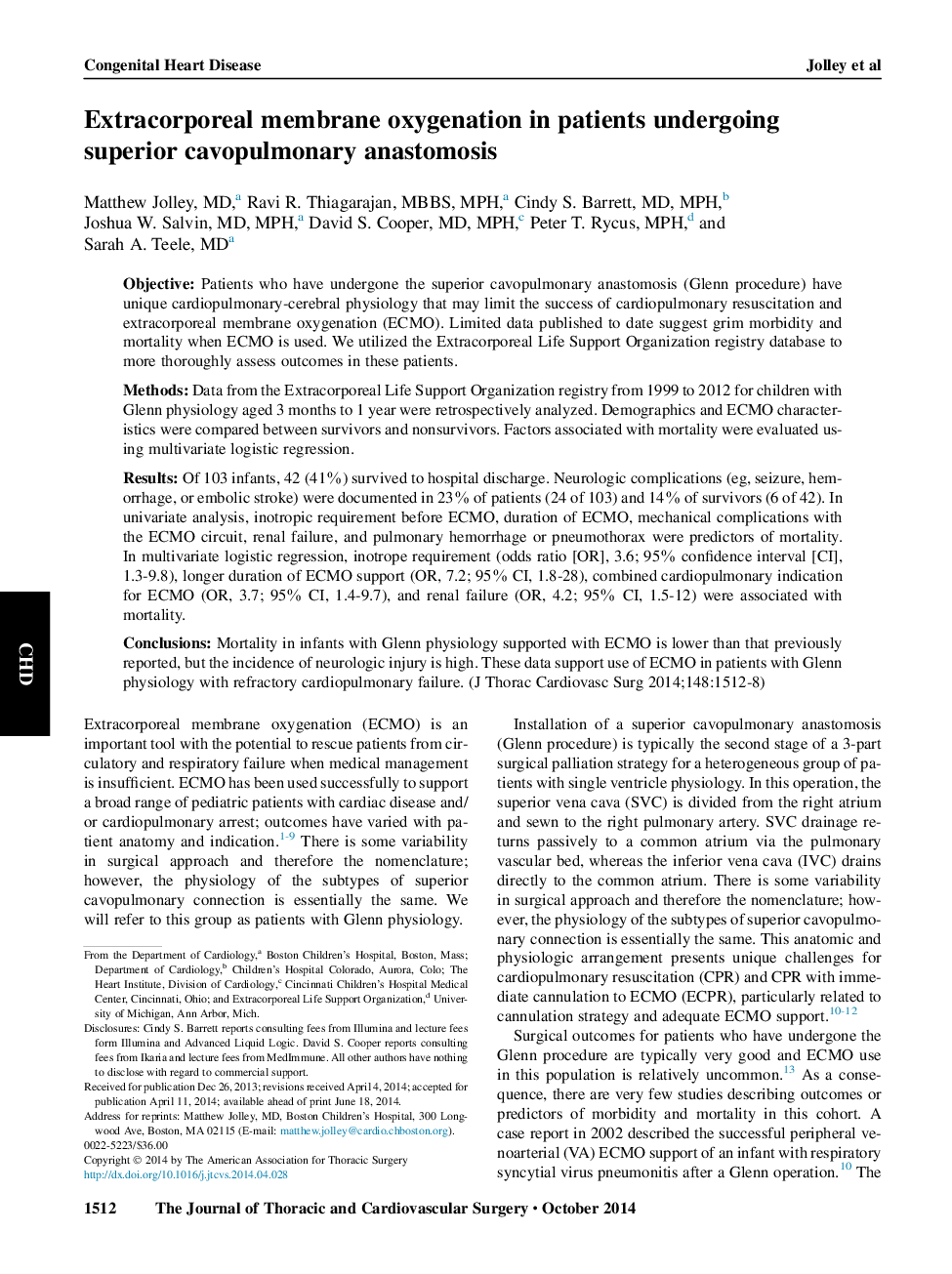| Article ID | Journal | Published Year | Pages | File Type |
|---|---|---|---|---|
| 2980413 | The Journal of Thoracic and Cardiovascular Surgery | 2014 | 7 Pages |
ObjectivePatients who have undergone the superior cavopulmonary anastomosis (Glenn procedure) have unique cardiopulmonary-cerebral physiology that may limit the success of cardiopulmonary resuscitation and extracorporeal membrane oxygenation (ECMO). Limited data published to date suggest grim morbidity and mortality when ECMO is used. We utilized the Extracorporeal Life Support Organization registry database to more thoroughly assess outcomes in these patients.MethodsData from the Extracorporeal Life Support Organization registry from 1999 to 2012 for children with Glenn physiology aged 3 months to 1 year were retrospectively analyzed. Demographics and ECMO characteristics were compared between survivors and nonsurvivors. Factors associated with mortality were evaluated using multivariate logistic regression.ResultsOf 103 infants, 42 (41%) survived to hospital discharge. Neurologic complications (eg, seizure, hemorrhage, or embolic stroke) were documented in 23% of patients (24 of 103) and 14% of survivors (6 of 42). In univariate analysis, inotropic requirement before ECMO, duration of ECMO, mechanical complications with the ECMO circuit, renal failure, and pulmonary hemorrhage or pneumothorax were predictors of mortality. In multivariate logistic regression, inotrope requirement (odds ratio [OR], 3.6; 95% confidence interval [CI], 1.3-9.8), longer duration of ECMO support (OR, 7.2; 95% CI, 1.8-28), combined cardiopulmonary indication for ECMO (OR, 3.7; 95% CI, 1.4-9.7), and renal failure (OR, 4.2; 95% CI, 1.5-12) were associated with mortality.ConclusionsMortality in infants with Glenn physiology supported with ECMO is lower than that previously reported, but the incidence of neurologic injury is high. These data support use of ECMO in patients with Glenn physiology with refractory cardiopulmonary failure.
